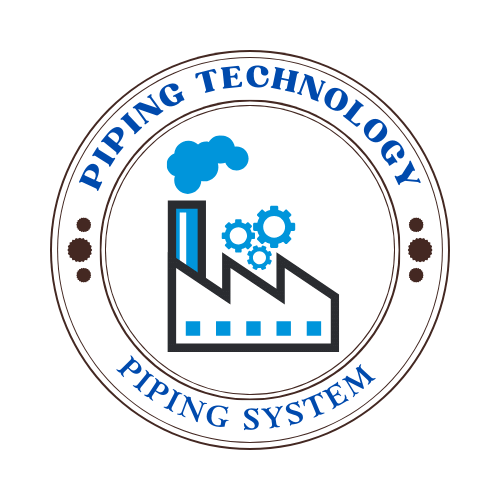Energy Engineering
Energy engineering is a critical aspect of the design, operation, and optimization of piping systems, encompassing a wide range of disciplines including mechanical engineering, chemical engineering, and environmental engineering. At PipingTechs.com, the emphasis on energy engineering within the context of piping and instrumentation systems is pronounced, aiming to equip professionals and enthusiasts with the knowledge and tools necessary to address energy-related challenges and opportunities in their fields.
Introduction to Energy Engineering
Energy engineering is the application of scientific principles to the design, development, and maintenance of energy systems that are efficient, sustainable, and environmentally friendly. It encompasses a wide range of activities, from the extraction and conversion of energy sources to the distribution and use of energy in various forms. Energy engineers work on the forefront of technological innovation, striving to improve existing energy systems and develop new solutions that reduce carbon footprints and enhance energy security.
Major Areas of Focus
- Renewable Energy: This area involves harnessing energy from renewable sources such as solar, wind, hydro, geothermal, and biomass. Energy engineers work on developing and optimizing technologies to capture, convert, and store renewable energy efficiently.
- Fossil Fuels: Despite the shift towards renewables, fossil fuels remain a significant part of the energy mix. Energy engineering in this context focuses on improving the extraction and burning processes of coal, oil, and natural gas to reduce emissions and increase efficiency.
- Energy Efficiency: Improving energy efficiency in industrial processes, buildings, transportation, and electrical appliances is a key focus. This involves the development of energy-efficient designs, materials, and technologies that reduce energy consumption and costs.
- Energy Storage: As the reliance on intermittent renewable energy sources grows, so does the importance of energy storage solutions. Energy engineers develop batteries, thermal storage systems, and other technologies to store energy effectively for later use.
- Energy Policy and Economics: Energy engineers also engage in developing and analyzing energy policies that promote sustainability and efficiency. They assess the economic impacts of energy choices and advocate for policies that support the transition to a more sustainable energy future.
Energy Efficiency in Piping Systems
PipingTechs.com delves into strategies for enhancing energy efficiency in piping systems, an area of paramount importance in today’s energy-conscious world. This includes discussions on the selection of energy-efficient materials and components, the design of systems for minimal energy loss, and the implementation of energy recovery systems. Topics such as insulation techniques, pump and compressor efficiency, and the optimization of system layouts to reduce unnecessary pressure drops are thoroughly explored.
Renewable Energy Integration
With the global shift towards sustainable energy sources, PipingTechs.com also covers the integration of renewable energy technologies with existing piping infrastructures. This includes the adaptation of piping systems for the distribution of alternative fuels such as hydrogen, the incorporation of solar thermal systems, and the challenges and opportunities presented by geothermal energy extraction.
Environmental Impact and Sustainability
Understanding the environmental impact of piping systems is crucial for responsible engineering practices. PipingTechs.com addresses the environmental considerations in piping system design, including the selection of environmentally friendly materials, the reduction of emissions and effluents, and compliance with environmental regulations. The platform emphasizes sustainable engineering practices that not only meet current needs but also ensure the viability of resources for future generations.
Thermal Systems and Heat Transfer
A significant portion of energy engineering revolves around thermal systems and the principles of heat transfer, which are fundamental to the design and operation of many types of piping systems. PipingTechs.com provides comprehensive coverage of heat exchangers, steam systems, and cooling systems, offering insights into their design, efficiency optimization, and troubleshooting.
Energy Audits and Monitoring
To identify opportunities for energy savings, PipingTechs.com highlights the importance of energy audits and monitoring systems. This includes methodologies for conducting energy audits in industrial settings, the use of instrumentation for real-time energy monitoring, and the implementation of energy management systems to continuously optimize energy use.
Advanced Technologies and Innovations
PipingTechs.com stays abreast of the latest advancements and innovations in energy engineering, such as the use of artificial intelligence and machine learning for energy optimization, the development of advanced materials for improved energy efficiency, and the exploration of cutting-edge renewable energy technologies.
Community Engagement and Knowledge Exchange
PipingTechs.com fosters a dynamic community where professionals, academics, and students can share their experiences, challenges, and solutions related to energy engineering in piping systems. Through forums, webinars, and collaborative projects, the platform encourages the exchange of ideas and best practices, contributing to the advancement of the field.
In summary, PipingTechs.com serves as a comprehensive resource for those interested in the intersection of energy engineering and piping technology, offering insights, strategies, and a platform for collaboration to address the energy challenges of modern industrial and environmental systems.
Energy engineering is a multifaceted field that sits at the crossroads of several disciplines, including mechanical, chemical, electrical, and environmental engineering. It is dedicated to the study, development, and implementation of solutions aimed at efficient energy use, the exploitation of renewable energy sources, and the minimization of environmental impacts. This article provides a comprehensive introduction to energy engineering, outlining its principles, applications, challenges, and future directions.
Challenges in Energy Engineering
Energy engineers face numerous challenges, including the technical difficulties of integrating renewable energy sources into existing grids, the need for advancements in energy storage technology, and the environmental and social impacts of energy projects. Additionally, the global nature of energy markets and politics adds complexity to the development and implementation of sustainable energy solutions.
Technological Innovations and Future Directions
The future of energy engineering is bright, with ongoing research and development in areas such as advanced materials for solar panels, offshore wind turbines, next-generation nuclear reactors, and carbon capture and storage technologies. Innovations in smart grids and AI-driven energy management systems are set to revolutionize how energy is distributed and consumed.
Historical Context
The field of energy engineering has evolved significantly over the past century, driven by industrial advancements, environmental concerns, and the growing demand for energy. The industrial revolutions introduced the world to the power of steam, coal, and oil, setting the stage for modern energy systems. However, the environmental impacts of these energy sources, coupled with the realization of their finite nature, have spurred the search for alternative, more sustainable energy solutions.
Core Principles of Energy Engineering
Energy engineering is grounded in the principles of thermodynamics, fluid mechanics, heat transfer, and material science. These principles guide the design and optimization of energy systems, ensuring they operate efficiently and effectively. Key concepts include energy efficiency, which aims to reduce energy waste in systems; energy sustainability, which focuses on using renewable resources and sustainable practices; and environmental stewardship, which emphasizes minimizing the environmental impact of energy production and use.
Conclusion
Energy engineering plays a pivotal role in addressing some of the most pressing challenges of our time: meeting the growing demand for energy while reducing environmental impacts and transitioning to sustainable energy systems. As the field continues to evolve, energy engineers will remain at the forefront of developing innovative solutions that pave the way for a more sustainable and energy-efficient future. The ongoing collaboration between engineers, policymakers, businesses, and communities will be crucial in shaping an energy landscape that balances economic growth with environmental stewardship and social responsibility.


 Automation System
Automation System  Energy Engineeing
Energy Engineeing  Instrumentation System
Instrumentation System  Mechanical Engineering
Mechanical Engineering  Piping Technologies
Piping Technologies  Transportations
Transportations  Manufacturing
Manufacturing  Training Material
Training Material 


































